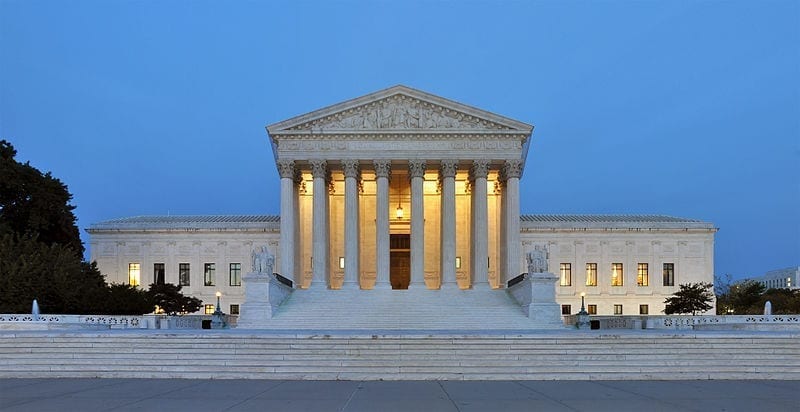The Supreme Court shot down the Trump administration’s proposal to add a question about citizenship to the U.S. Census on Thursday. Writing for the majority, Chief Justice John G. Roberts Jr. said the White House’s explanation lacked merit and “appears to have been contrived.”
However, the court didn’t offer a definitive rebuke. Roberts, writing for the majority, left open the door for future alterations—including another go at a citizenship question, provided the White House can offer a better explanation for its inclusion.
According to Roberts, a sitting president and his office must “offer genuine justifications for important decisions, reasons that be scrutinized by courts and the interested public.
“Accepting contrived reasons would defeat the purpose of the enterprise,” Roberts wrote. “If judicial review is to be more than an empty ritual, it must demand something better than the explanation offered for the action taken in this case.”
Trump’s apparently leaping for the loophole. Shortly after the decision was announced, the president took to Twitter, wondering aloud whether he might be able to delay the upcoming census.
Seems totally ridiculous that our government, and indeed Country, cannot ask a basic question of Citizenship in a very expensive, detailed and important Census, in this case for 2020. I have asked the lawyers if they can delay the Census, no matter how long, until the…..
— Donald J. Trump (@realDonaldTrump) June 27, 2019
“Seems totally ridiculous that our government, and indeed Country, cannot ask a basic question of Citizenship in a very expensive, detailed and important Census, in this case for 2020,” Trump tweeted on Thursday. “I have asked the lawyers if they can delay the Census, no matter how long, until the United States Supreme Court is given additional information from which it can make a final and decisive decision on this very critical matter. Can anyone really believe that as a great Country, we are not able to ask whether or not someone is a Citizen. Only in America!”
Fox News notes that it’s difficult to ascertain whether President Trump has the authority to put off the next population count.
The Justice Department—which represented the government before the Supreme Court—said it was “disappointed” by the rejection.
“The Department of Justice will continue to defend this administration’s lawful exercise of executive power,” said spokesperson Kelly Laco.
Critics of the proposed citizenship question have long claimed that its purpose isn’t simply to gauge how many immigrants—legal or not—are living in the United States. Rather, they believe the president is trying—intentionally, or perhaps inadvertently—to frighten certain segments of the population. Any refusal to send back or answer certain census questions could culminate in an under-count. And with many immigrants living in predominately Democratic districts, an under-count might cause some liberal, political regions to lose federal funding or even congressional seats.
While the citizenship question may have been the brainchild of Trumpian policy, efforts for its inclusion were spearheaded by the Commerce Department and its secretary, Wilbur Ross.
Ross, says the New York Times, allegedly discussed the citizenship question with Stephen Bannon, the White House’s former chief strategist. Documents presented before the Supreme Court indicate that Republican bureaucrats and Washington insiders wanted to collect citizenship information for the express purpose of redrawing voting districts by only counting eligible voters rather than the aggregate of residents.
In dissent to Roberts’ decision, Justice Clarence Thomas claimed the majority had done something extraordinarily unusual.
“For the first time ever,” Thomas wrote, “the court invalidates an agency action solely because it questions the sincerity of the agency’s otherwise adequate rationale.”
Sources
Supreme Court Leaves Census Question on Citizenship in Doubt
The Supreme Court left the door wide open for Trump to try again on census citizenship
Trump seeks 2020 census delay after Supreme Court blocks citizenship question


Join the conversation!